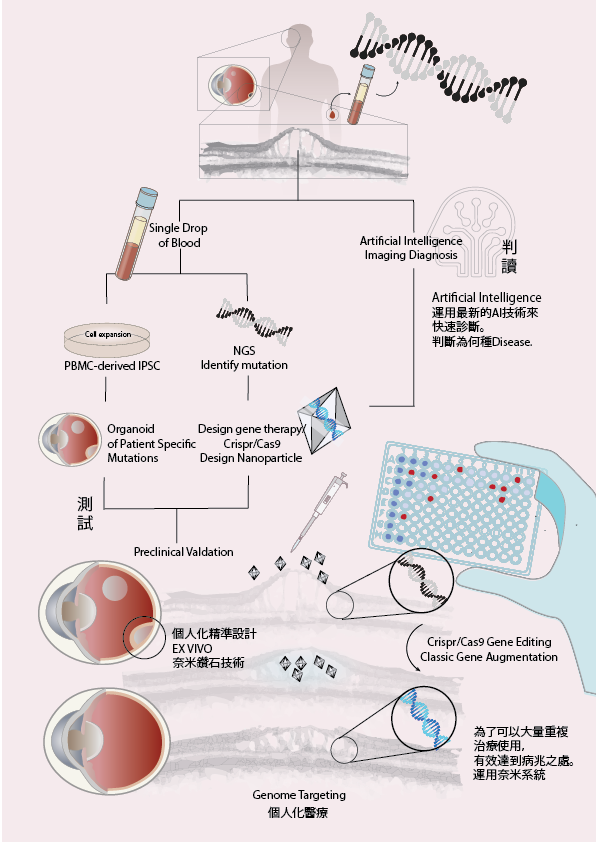
Novel Nanotechnology-Based Genomic Editing For Precision Medical Therapeutics in Retinal Diseases
2020-11-24
Inherited retinal diseases are caused by mutations in one or more genes that cause retinopathy and even blindness. The purpose of gene therapy is to restore the original function of the gene, so that the patient can recover or improve vision. CRISPR/Cas9 is a new genome editing technology that can perform targeted and precise editing of genes, so it has won the reputation of "gene scissors" and won the Tang Prize in 2016 and the Nobel Prize in 2020. We developed a nanoparticle that can carry gene editing components and can be administered by intravitreal injection. Preclinical trials of drugs are usually only tested on non-human species. Therefore, our team has further applied iPSC technology to develop patient 3D retinal organoids as a personalized drug screening platform. The combination of nanomedicine and human retinal organoids can promote the application of precision medicine and solve the problem of vision loss caused by hereditary retinal diseases.
Novel Nanotechnology-Based Genomic Editing technology include nanoparticle carrier, CRISPR/Cas9-based gene correction, and retinal 3D organoid
- The advantages of nanodiamonds include no doubts about viral genes contamination, high load capacity, high biocompatibility, and easy deliver drugs to various layers of the retina.
- CRISPR gene correction technology can specifically target DNA mutation sites for gene editing therapy.
- Human 3D organoids can present the pathological features of retinopathy in vitro. In addition to verifying the effectiveness of CRISPR gene editing, it can also verify the safety of gene editing based on the patient's genome background, thereby avoiding off-target effects.
Look for:
novel technology development, Precision Medical Therapy development
InnoZone Booth No. A115
